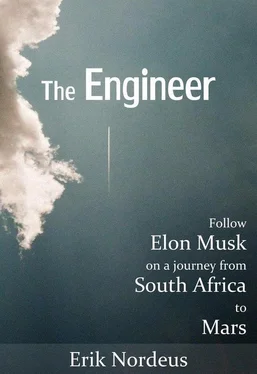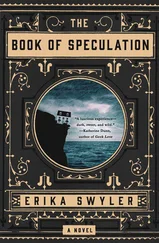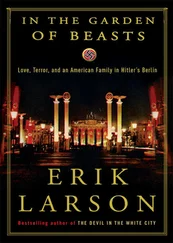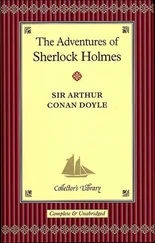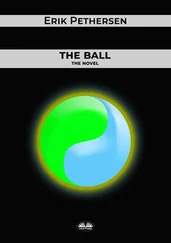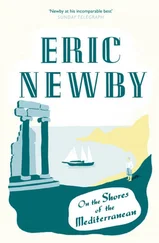He read books by philosophers like Friedrich Nietzsche and Arthur Schopenhauer. 357“The spirit now wills his own will, and he who had been lost to the world now conquers the world,” Nietzsche wrote in the book Thus Spoke Zarathustra . But one of his favorite books was The Hitchhiker’s Guide to the Galaxy by Douglas Adams. It covers several philosophical aspects and the storyline can be described as a combination of Monty Python and Star Wars . While reading it, Elon found his favorite spaceship of all times: Heart of Gold . What he really admired was the starship’s engine. The engineer who designed the starship equipped Heart of Gold with an Infinite Improbability Drive – an engine faster than the speed of light. 342
What Elon learned from The Hitchhiker’s Guide to the Galaxy was that the tough thing is figuring out what questions to ask. But once you have it all figured out, the rest is easy. He realized we humans should aspire to increase the scope and scale of human consciousness to understand what questions to ask. The only thing that makes sense is to strive for greater collective enlightenment. That’s the meaning of life. 51This strive began in college. “When I was at Penn, I started thinking about what would most affect the future of humanity,” Elon said. 57
But why began Elon to think about these questions? Maybe it was because he read science fiction books. Isaac Asimov, one of Elon’s favorite authors, thought science fiction will help you adjust to an ever changing world. “Very few people realize that change is inevitable and that it will occur more and more rapidly as time goes on,” Asimov said. “So it’s absolutely essential to consider the future in making our decisions… and to face that future with daring and guts. I believe no amount of reading in any field but science fiction is going to convince anyone of the inevitability of change.” 455
We will see that many of Elon’s ideas can be traced back to Asimov, but Elon also used his engineering skills to dismiss several of Asimov’s ideas. For example, Asimov was enthusiastic about the Space Shuttle, but Elon discovered that the Space Shuttle was considerable worse than the traditional rocket. Asimov thought that solar panels in space could solve our energy problems, but Elon discovered that it’s way better to have solar panels on the ground back on Earth.
So the ideas began to form when the young Elon read books. “I read a lot of science fiction as a kid and tried to think about the future and the problems that needed to be solved to make it a bright future,” he said. 66Elon also talked about his ideas with friends and dates. “Do you ever think about electric cars?” he asked a date when they just met. 363Several years later, one of the dates recalled that dating Elon was memorable. 322
Elon came up with three things that in the future will most affect the future of humanity. “The three things that I thought would be the most effective were the Internet, the transition to a sustainable energy economy, and space exploration, particularly extension of life to multiple planets,” Elon said. 57
These three things were not the only ideas he thought about. He also thought artificial intelligence and biology would affect the future of humanity. “Rapid, low-cost, perfect DNA sequencing will have a huge effect on humanity,” Elon said. “Human DNA has not yet been completely decoded. The most that anyone has gotten is about 91 or 92 percent, and that has been with a huge number of errors. Trying to read our DNA is like trying to understand software code – with only 90 percent of the code riddled with errors. It’s very difficult in that case to understand and predict what the software code is going to do. That’s a touchy subject.” 370
* * *
In an interview from the 1980s, Asimov talked about something that seemed silly. “In the old days, very few people could read and write,” he said. “Literacy was a very novel sort of thing, and it was felt that most people just didn’t have it in them. But with mass education, it turned out that most people could be taught to read and write. In the same way, once we have computer outlets in every home, each of them hooked up to enormous libraries, where you can ask any question and be given answers, you can look up something you’re interested in knowing, however silly it might seem to someone else.” What he was talking about is known today as the Internet. 456
A primitive form of the Internet existed as early as the 1970s. But the real revolution began the same year Elon landed in Canada, 1989. Tim Berners-Lee, who worked as a computer researcher in Europe, wrote a program that linked information on the Internet into what was called World Wide Web. Four years later, Marc Andreessen and Eric Bina developed the browser Mosaic. It’s often described as the first graphical browser that made the Internet more user-friendly.
Computer enthusiasts and the academic institutions were the early adopters of the new technology. Like it is today, the Internet back then was used to exchange underground knowledge: how to pirate games, how to hijack long-distance telephone services, and how to make bombs. 122
Elon’s first exposure to the Internet took place when he studied physics and discovered the online physics-research community. In 1994, he thought the Internet could become the next big thing. “I don’t remember one great Aha moment, when I suddenly had some grandiose commercial vision – that classic story entrepreneurs are supposed to have,” Elon said. “What happened was, in working with the Web, I became absorbed by its astounding possibilities as a medium which could completely change the economics of the delivery of printed information.” 265
To find the same information before the Internet existed, we had to visit libraries or talk to wise men and women. “It’s become a bit of a cliche recently to talk of it as a breakthrough as important as the Gutenberg printing press, but that doesn’t make it any less astounding. Or less true,” Elon said. “You can be in the jungles of Kongo and have a satellite link to the Internet and have access to essentially the entire knowledge of humanity.” 265,354
The best example of this collective knowledge of humanity has to be Wikipedia, which is an online dictionary written by anonymous Internet volunteers. Before Internet, we had to spend hundreds of dollars on encyclopedias that can’t be updated if something new happens. Wikipedia is often updated within seconds after an event has happened. But we must be careful. Knowledge found on the Internet is not necessarily the truth. “Wikipedia is actually pretty damn good,” Elon said. “It’s really incredible what you can learn. It’s like 90 percent accurate. It’s just not clear what 90 percent.” 443
* * *
When Elon grew up in South Africa, he was exposed to several energy crises. One of them occurred after United Nations adopted a voluntary oil embargo against South Africa to force the country to abandon the apartheid system. “Between 1973 and 1984 the Republic of South Africa had to pay R22 billion [The rand, R, is the currency of South Africa] more than it would have normally spent,” the then South African President, P.W. Botha, said. “There were times when it was reported to me that we had enough oil for only a week. Just think what we could have done if we had that R22 billion today… what could have been done in other areas? But we had to spend it because we couldn’t bring our motor cars and our diesel locomotives to a standstill as our economic life would have collapsed.” 40
Someone who also inspired Elon that the energy field is important was again Isaac Asimov. He was negative to the world’s future. In an interview from 1980, he thought the probability that our civilization will survive more than another 30 years is less than 50 percent as both our energy and food supplies will decrease. “Terrorism will also become a way of life in a world marked by severe shortages,” Asimov said. “Finally, some government will be bound to decide that the only way to get what its people need is to destroy another nation and take its goods… by pushing the nuclear button.” 455
Читать дальше
